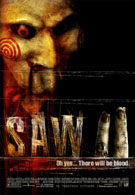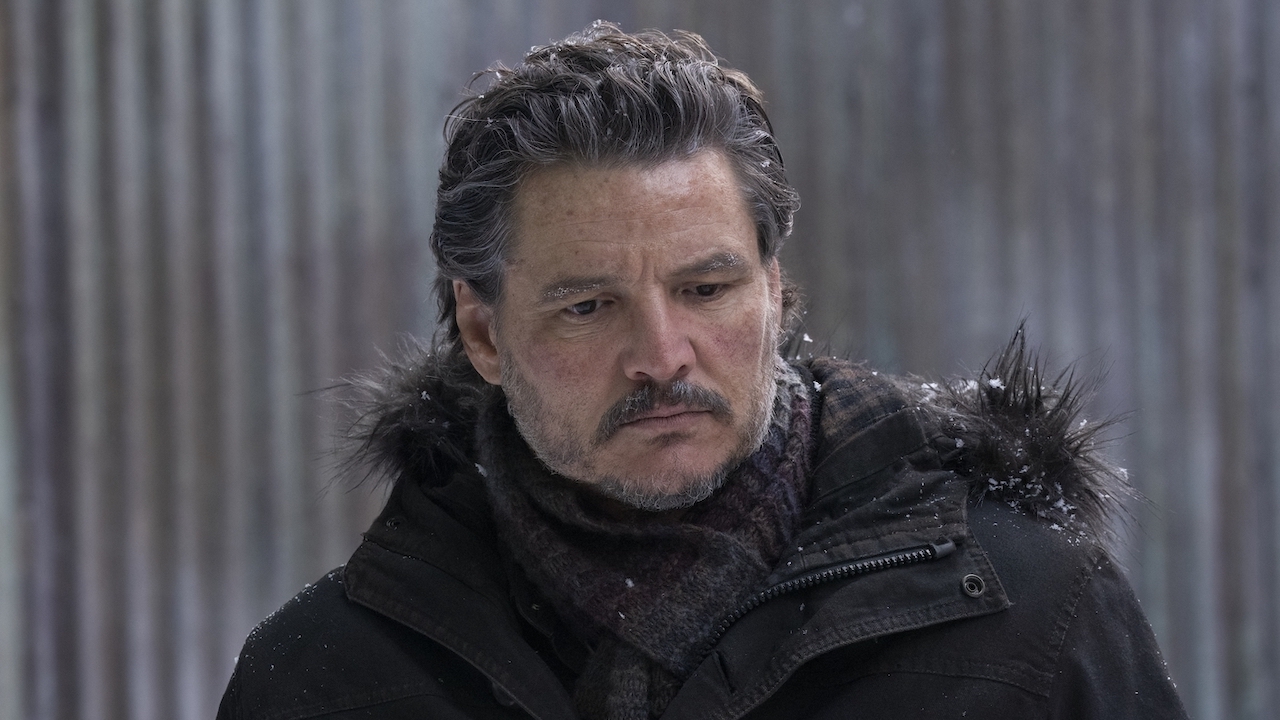Jigsaw, the serial killer who tormented Cary Elwes (who in turn tormented audiences with his laughable performance) is back in Saw II, armed with trickier traps and games for all his targets. As Jigsaw himself informs his audience, “Oh yes, there will be blood.” However, that audience is made up of police detectives who have captured him. That’s right – Jigsaw, or John (Tobin Bell) is in custody within ten to fifteen minutes of the movie’s opening. Since the secret of Jigsaw’s identity was pretty much revealed in the first film, the sequel doesn’t attempt any trickery with that, using the opportunity to put the killer front and center for some spectacular scenes between the Jigsaw and Detective Eric Mason (Donnie Wahlberg) that could rival the conversations in Silence of the Lambs between criminal and cop. Mason, it turns out, may very well be the true target of Jigsaw’s game - a game of life and death the detective gets to watch on video monitors as Jigsaw’s victims, including the detective’s son Daniel, struggle for survival.
This time around, the killer has trapped half a dozen people in a house where they are breathing a toxic gas that will kill them in two hours. The players are a varied bunch, including the aforementioned Daniel (Erik Knudson) and Amanda (Shawnee Smith), a woman who has been “tested” by Jigsaw before. The game they are in is simple: find antidotes to the toxin and a way out. In many ways the plot is similar to other movies like Cube which contain people trapped in identical situations.
Each room of the house contains a puzzle intended for one of the “players” of Jigsaw’s games, complete with a cassette tape that explains for whom and why each trap exists, with each trap tying in to that character’s particular “crime” (why Jigsaw felt that particular person needed to be tested). It’s a neat way of presenting each character’s flaws without going into tons of exposition, but it’s also with its own flaws. Conveniently, there are no puzzle rooms for characters who are killed off before finding their room. This means Jigsaw is either the best fortune-teller ever, able to predict which characters will die when, or it means the writers got sloppy and put a few characters in with their only purpose being to serve as “red shirts”. Personally, I would have found it much more interesting for the brute of the group, Xavier (Franky G) to have killed one member of the group, only to find that character’s trap and not know how to deal with it.
One other note should be mentioned about these traps. In the movie they’ve been created by Jigsaw, a mentally disturbed serial killer. In reality they’ve been created by some Hollywood writers that may very well be equally disturbed. The ideas and concepts for these traps are just flat out sickening at times, and more then one made me wince just at the thought of what was going to happen, let alone once it finally appeared on screen. Writer/director Darren Lynn Bousman and co-writer Leigh Whannell are to be commended for their creativity in developing the film’s puzzles. At the same time, perhaps authorities should keep an eye on these two in the future… just in case.
Most of the people I know who saw the first movie had one large complaint: the acting. Even though the story for Saw was decent, the acting made it fail. While the quality of the acting in this sequel isn’t exactly high (the movie does star “Becker”s Shawnee Smith after all), it isn’t torturous. What’s more painful is how thick some of the characters are when dealing with Jigsaw’s games. When you’re given an essential clue, you listen to it. Well not these guys. Given that they were written so foolishly that the characters can’t even listen to simple advice, you can’t fault the actors for playing the characters as dunces. Either way you want to place the blame, writer or actor, it’s still a step above the original movie.
As with most horror movies these days, Saw II does have one disappointing aspect: the requisite MTV style editing that ensues when the action kicks into high gear. Each time Jigsaw’s puzzles prepare to go off, we see quick, increasingly faster, strobe-like shots of the trap before, during, and after it fires. Some of these quick shots are so fast I’m honestly surprised there isn’t a warning for epileptics. At the same time, it does create an extremely tense atmosphere. If you can make it through the first five minutes of the movie (a particularly torturous trap that references the one in the first film) then you’ll be fine. If you’re having seizures by then, you won’t make it through the rest of the movie.
Also like most horror movies, at least the ones this year, there is a necessary surprise twist. That’s not really spoiling much since the concept of a twist was such a big element for the first Saw. Unlike most of the movies I’ve seen this year, this is a well done twist. It makes complete and total sense and, more importantly, doesn’t feel tacked on just to get a rise out of the audience. It’s the kind of plot move that was obviously determined early in the process, making it an essential part of the movie. Most modern day horror filmmakers could seriously learn from Saw II’s plot structure.
With a stronger story, sicker and more disturbing traps, and even better acting then the original, Saw II is one of those rare sequels that surpass the foundation it was built on. While the movie does, yet again, leave things open for a potential sequel, I hope Lion’s Gate won’t resort to pulling another chapter out. They’ve gotten the Saw concept right this time. There’s no need to delve further and possibly steer the franchise in the wrong direction.











